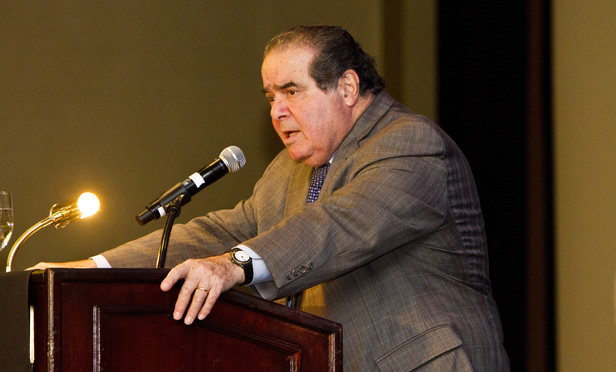I was working in my office late on the afternoon of Feb. 13 when news began to spread that U.S. Supreme Court Justice Antonin Scalia had died while on a hunting trip in a rather isolated part of southwestern Texas. Although the death of someone a month shy of his 80th birthday should not come as a shock, Scalia’s outsized personality and the impassioned nature of many of his written opinions, not to mention the frequency with which he would verbally wrestle with counsel at oral argument, had made it seem that he could and would survive indefinitely.
Without question, Scalia had a major impact on American law and the way that lawyers in the United States approach and think about questions involving the meaning of the U.S. Constitution and legislative enactments. By focusing on the precise language of a constitutional or statutory provision and what it was understood to mean at the time of its adoption, Scalia sought to confine judges to what he viewed as the proper judicial role, which was something far more limited than serving as an all-knowing super-legislature over which the public could exercise little to no control due to the life tenure enjoyed by federal judges.
This content has been archived. It is available through our partners, LexisNexis® and Bloomberg Law.
To view this content, please continue to their sites.
Not a Lexis Subscriber?
Subscribe Now
Not a Bloomberg Law Subscriber?
Subscribe Now
LexisNexis® and Bloomberg Law are third party online distributors of the broad collection of current and archived versions of ALM's legal news publications. LexisNexis® and Bloomberg Law customers are able to access and use ALM's content, including content from the National Law Journal, The American Lawyer, Legaltech News, The New York Law Journal, and Corporate Counsel, as well as other sources of legal information.
For questions call 1-877-256-2472 or contact us at [email protected]



